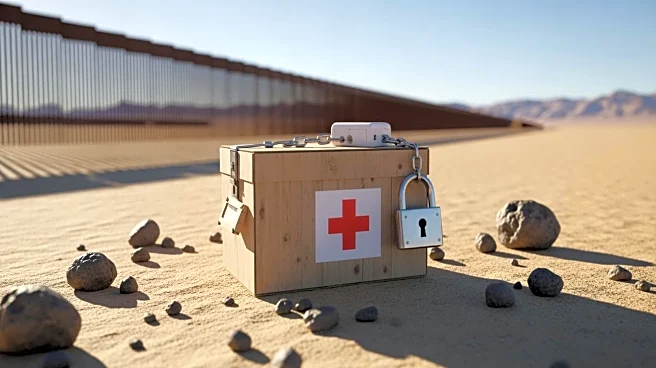What's Happening?
Israel has implemented new regulations that prevent longstanding aid organizations from operating in Gaza, affecting groups like Save the Children, which has been active in the region for over 70 years. The new rules require detailed personal information
of staff and their families, which many organizations view as a security risk. Additionally, the regulations allow Israel to ban aid groups based on their public statements. This move comes after a promised surge of aid following a ceasefire has not materialized, leaving Gaza in a state of destruction and humanitarian need.
Why It's Important?
The decision to block aid groups from Gaza has significant implications for humanitarian efforts in the region. It disrupts the delivery of essential services and support to a population already suffering from the effects of conflict. The new regulations could deter international organizations from speaking out against human rights violations, potentially limiting advocacy for vulnerable populations. This situation highlights the complex interplay between politics and humanitarian aid, raising concerns about the future of international assistance in conflict zones.
What's Next?
Aid organizations are currently in limbo, with some awaiting decisions on their applications to continue operations in Gaza. The international community may respond with diplomatic pressure on Israel to reconsider its stance, while advocacy groups might increase efforts to highlight the humanitarian crisis. The situation could lead to further scrutiny of Israel's policies and their impact on global humanitarian efforts.
Beyond the Headlines
The blocking of aid groups in Gaza raises ethical questions about the politicization of humanitarian aid. It challenges the principle of impartiality in aid delivery and could set a precedent for other regions where political considerations override humanitarian needs. The long-term impact on Gaza's recovery and the well-being of its residents remains uncertain.
















